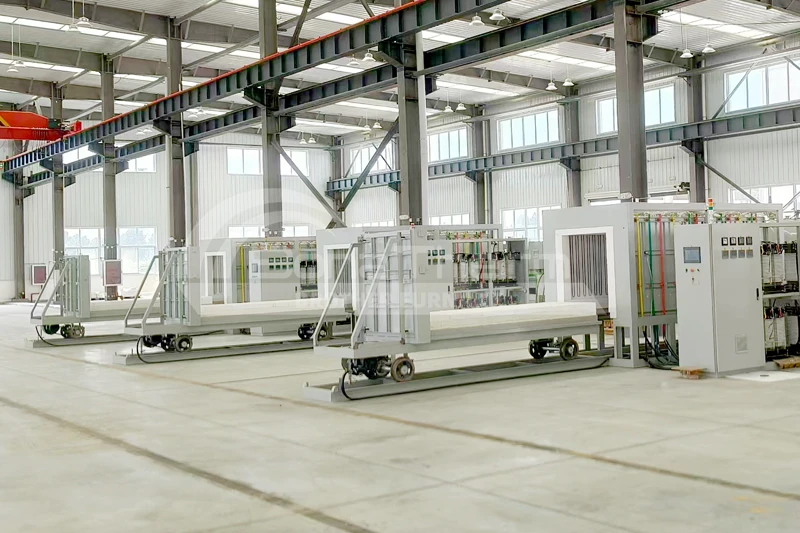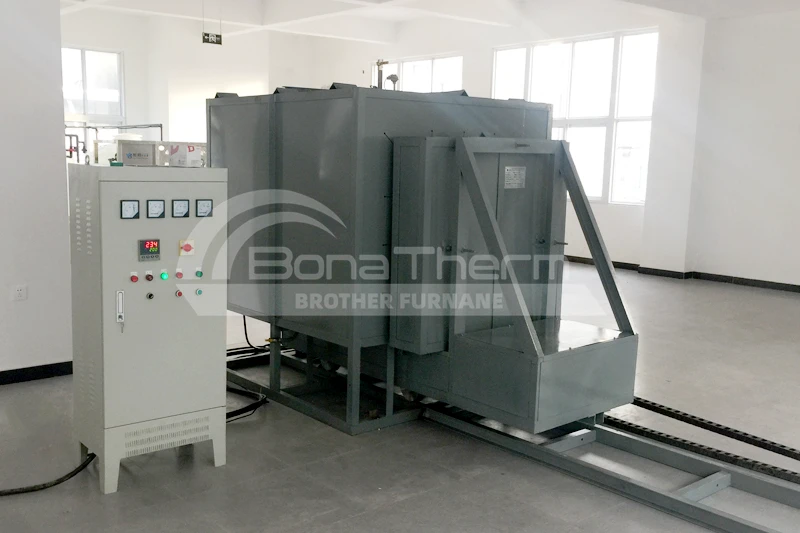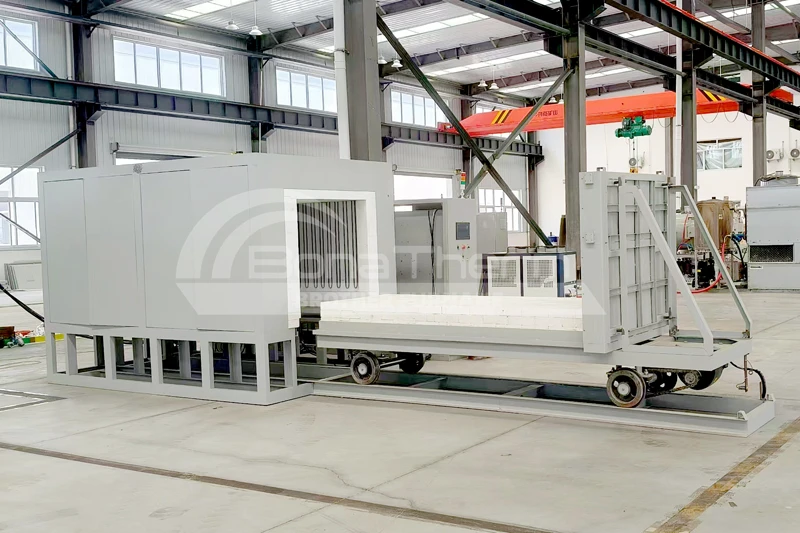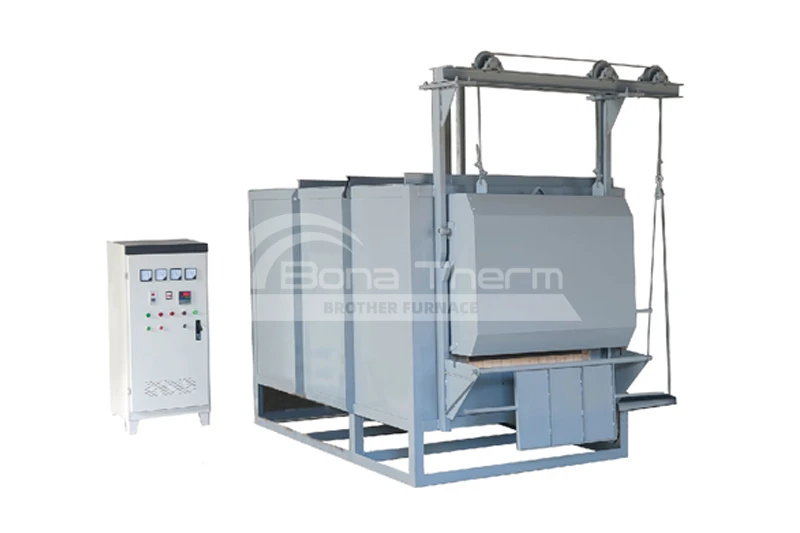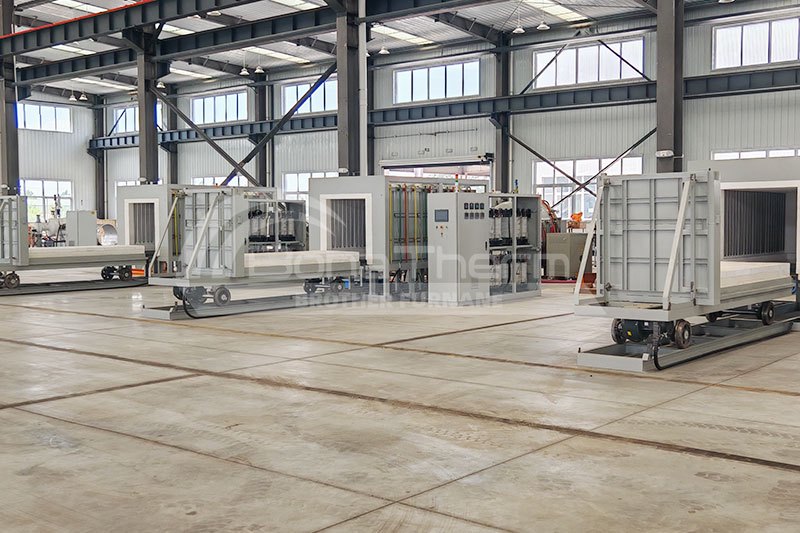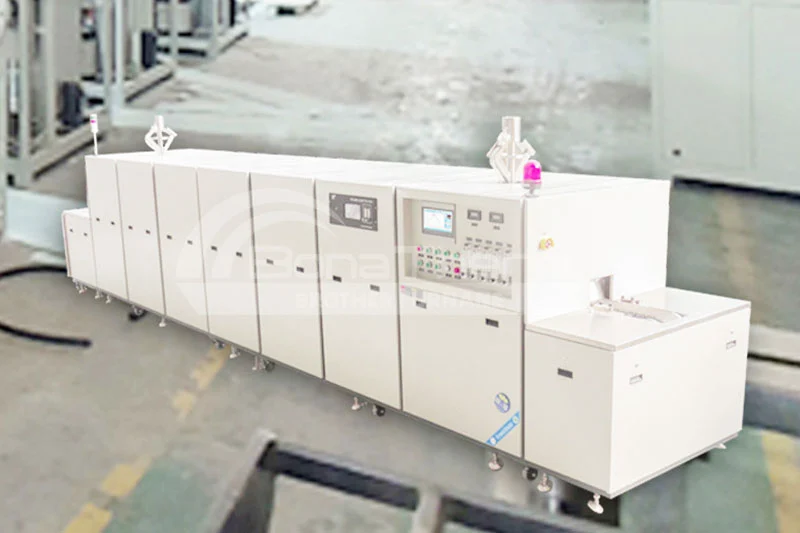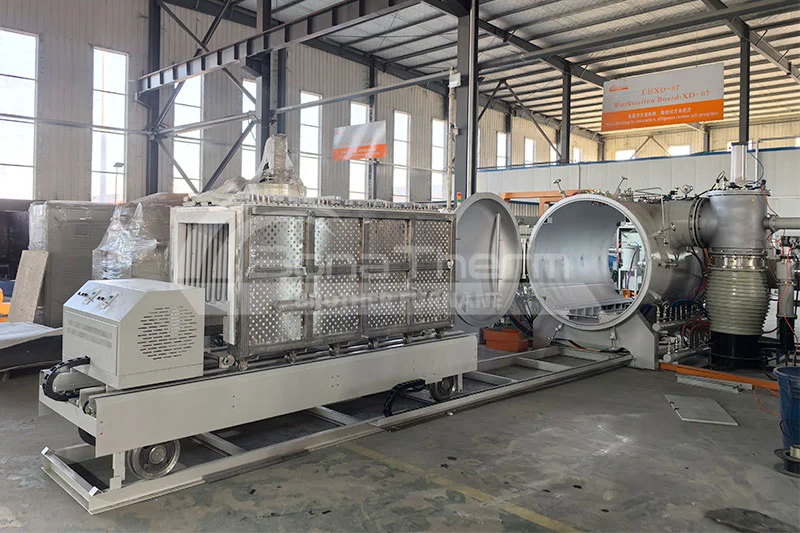Applications for Industrial Furnaces
Industrial furnaces are crucial in modern industry, typically used for large-scale applications. This article will detail the primary uses of industrial furnaces to understand their significance in various fields better.

1. Metal Heat Treatment
Metal heat treatment is one of the most common applications of industrial furnaces. By heating, maintaining, and cooling metal materials, their physical and mechanical properties can be altered. Common heat treatment processes include:
Quenching
Rapidly cooling steel to increase its hardness and strength.
Annealing
Slowly cooling metal to relieve internal stress and improve workability
Tempering
Heating quenched metal to a lower temperature to reduce brittleness.
2. Metal Smelting
Industrial furnaces play a key role in the metal smelting process. They are used to melt metals and alloys for casting or other processing operations, commonly used in the production of steel, aluminum, copper, and other metals.
3. Ceramic and Powder Metallurgy Sintering
Industrial furnaces are used for the sintering process of ceramic materials and metal powders. Sintering involves heating powder materials at high temperatures to bond particles and form a dense solid. This process is widely used in manufacturing ceramic products and powder metallurgy parts, such as ceramic tiles and hard alloy tools.
4. Surface Treatment
Industrial furnaces are also crucial in surface treatment processes. They are used for the curing and treatment of coatings and platings on workpieces. For example:
Paint Drying
Used to cure coating materials, ensuring adhesion to the substrate surface.
Electroplated Part Heating
Used to heat treat electroplated parts to enhance surface hardness and corrosion resistance.
5. Glass Manufacturing
In the glass manufacturing process, industrial furnaces are used for melting, forming, and annealing glass. High-temperature furnaces melt raw materials into glass liquid, which is then molded and annealed to eliminate internal stress, ensuring the quality and stability of glass products.
6. Chemical Reactions
Industrial furnaces are widely used in high-temperature chemical reactions within the chemical industry. For example:
Cracking Reactions
Breaking down large molecular compounds into smaller ones at high temperatures.
Catalytic Reactions
Conducting chemical reactions involving catalysts in a high-temperature environment to increase reaction speed and efficiency.
Synthesis Reactions
High-temperature reactions are used to synthesize new materials and compounds.

Summary
The wide application of industrial furnaces in many fields reflects its importance in modern industrial production. Whether it is metal processing, ceramic manufacturing, chemical reactions, or food processing, industrial furnaces play an indispensable role in improving product quality and production efficiency. Understanding the various uses of industrial furnaces will help companies choose suitable equipment, optimize production processes, and enhance competitiveness.
Brother Furnace has achieved significant results in providing industrial furnace solutions to customers around the world and has received unanimous praise from customers. Welcome to consult our industrial furnaces. Brother Furnace will tailor industrial furnace solutions for customers.

